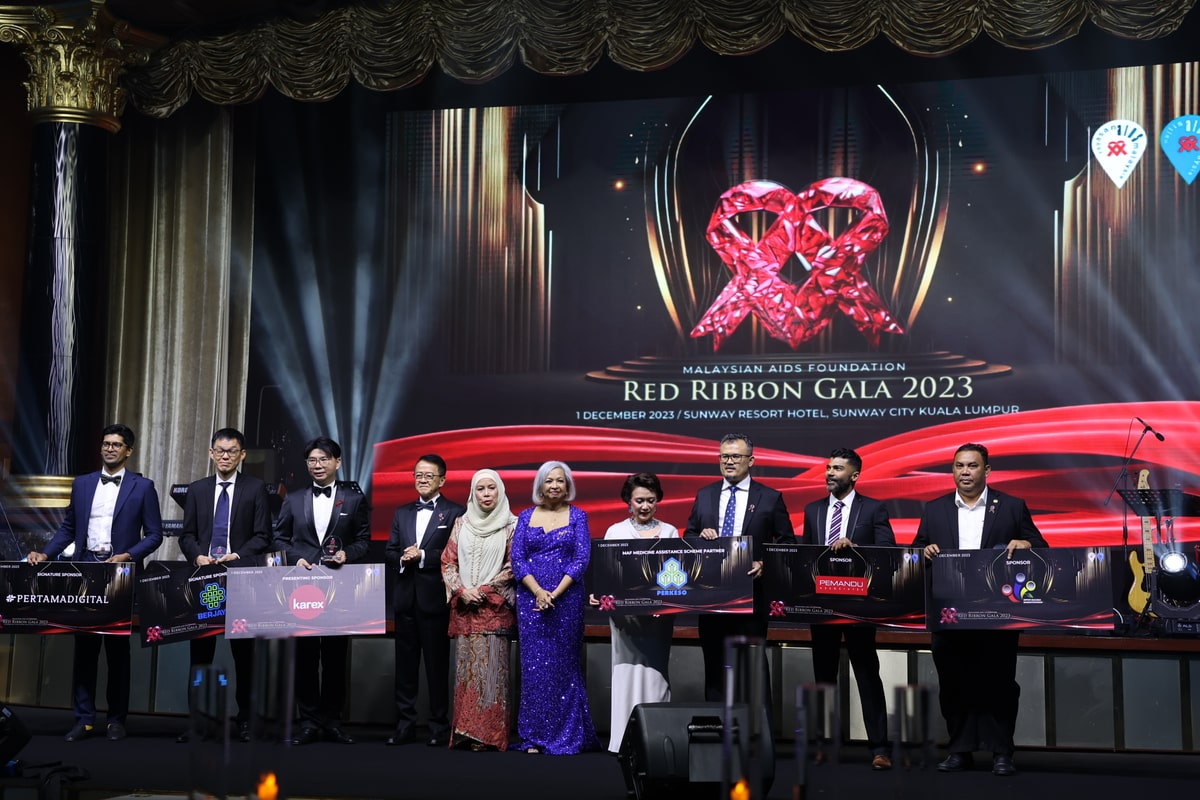KUALA LUMPUR, Dec 5 — The government has expressed support for the Malaysian AIDS Foundation’s (MAF) proposal to amend the Employment Act 1955 and the Industrial Relations Act 1967 to protect people living with HIV (PLHIV) from workplace discrimination.
Azman Abidin – a political secretary to the Prime Minister’s Office who represented Prime Minister Anwar Ibrahim at MAF’s Red Ribbon Gala fundraising event here last Friday – said the MAF and the Ministry of Human Resources (KSM) are in the midst of refining the proposal for such legal reforms.
“I fully support the efforts of Yayasan AIDS Malaysia to amend legal provisions that can provide protection in the workplace for people living with HIV,” Azman said in a speech at the event held at Sunway Resort Hotel.
“I was made aware that the Malaysian AIDS Foundation and KSM are in the process of refining the proposal to reform this bill that also receives support from the Ministry of Health, a few GLCs (government-linked companies) and also stakeholders.
“I call on employers and stakeholders in the work sector to give your full attention to this issue. With your support, the rights of people living with HIV can be protected, and our efforts to end AIDS by 2030 will go well.”
The MAF is currently examining these two key pieces of legislation to assess the possibility of including provisions that safeguard PLHIV from discrimination. In addition, the HIV advocacy group is also exploring the possibility of introducing an entirely new HIV workplace protection bill.
MAF said that its collaboration with KSM is crucial in this initiative, as MAF is actively seeking guidance from KSM to determine the most effective approach in drafting the bills and navigating the proposals through the legislative process. KSM is the primary stakeholder in this initiative.
The prime minister’s representative also urged employers in Malaysia to reassess their human resource standard operating procedures that may have unwittingly discriminated against PLHIV.
He said that employers can base their updates on the code of practice for HIV and management in the workplace developed by KSM.
According to Azman, many employers in Malaysia are stuck in the past and refuse to change their stance on productivity issues and unfounded perceptions of the risk of HIV contagion in the workplace.
Azman said that employers’ stances on productivity and contagion are the two main arguments employers use to justify their actions for not hiring PLHIV.
As the treatment of HIV using antiretroviral therapy (ART) has transformed the HIV narrative from death to a manageable and controllable condition, the treatment is now a pillar of the Malaysia National Strategic Plan for Ending AIDS 2016-2030 (NSPEA), said Azman.
The NSPEA adopts the global 95-95-95 target. According to the Ministry of Health’s (MOH) “2022 Global AIDS Monitoring: Country Progress Report”, Malaysia’s progress on the 95-95-95 target reached 83-66-82 in 2021, where 83 per cent of people living with HIV know their status, 66 per cent of people who know they’re living with HIV are receiving ART, and 82 per cent of people on the treatment are virally suppressed.
In 2022, the MOH spent more than 75 per cent of its expenditure for HIV and AIDS on screening and treatment of HIV. Azman held that the government is willing to continue the subsidisation of ART medication.
“The government is willing to bear the cost of procuring HIV medication that is known as antiretroviral [therapy] or ART because this treatment is able to give a second chance to those living with HIV to lead a normal and free of AIDS symptoms or clinical complications caused by HIV infection.”
MAF patron Marina Mahathir, who also gave a speech at the event, said that the key tool to eradicating AIDS is lifelong medication for those infected with HIV. However, a lack of public awareness on how to protect themselves against the virus is still a problem.
“We have to redouble our efforts to educate new generations of vulnerable people, especially the young. This will require more resources, [and] compounding this issue, stigma and discrimination have a profound impact on those living with the condition than the virus itself.
“It is difficult to survive if one feels the constant sting of prejudice. It is therefore our responsibility to proactively engage in spreading HIV education, particularly in the crucial battle against stigma and discrimination. The availability of life-saving therapies is a crucial part of this, hence the need to continually support access to treatment and care,” said Marina during her speech.
Recently, Health Minister Dr Zaliha Mustafa announced that the rate of HIV infections slowed down in the past decade when compared to the previous decade. The health minister held that new HIV cases dropped by 50 per cent between 2000 and 2009, but declined in the subsequent decade to 24 per cent in the years 2010 to 2022.
Dr Zaliha added that the mode of transmission for HIV has changed from needle sharing in the early stages of the HIV pandemic to sexual transmission in 2011. Young adults aged 20 to 39 comprised 77 per cent of HIV cases in Malaysia, in which more than 90 per cent were men. Nearly all, or 97 per cent, were infected via sexual transmission.
Azman also congratulated MAF on the launch of its Impact Report 2023 that encapsulated the collective efforts, progress and impact of various HIV programmes carried out by MAF.
“Assessment reports such as this are very important to maintain the integrity of Malaysian AIDS Foundation’s that holds the trust and faith of the public to carry out HIV and AIDS assistance programmes transparently, prudently and capable of bringing positive change to the community.”









